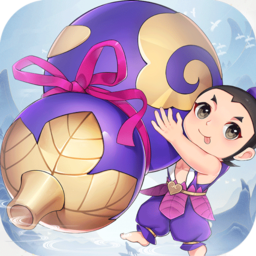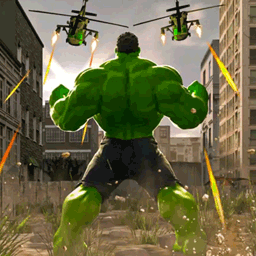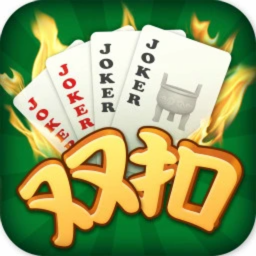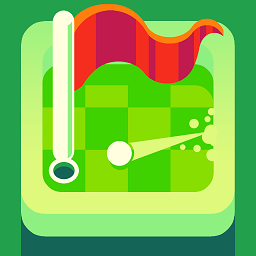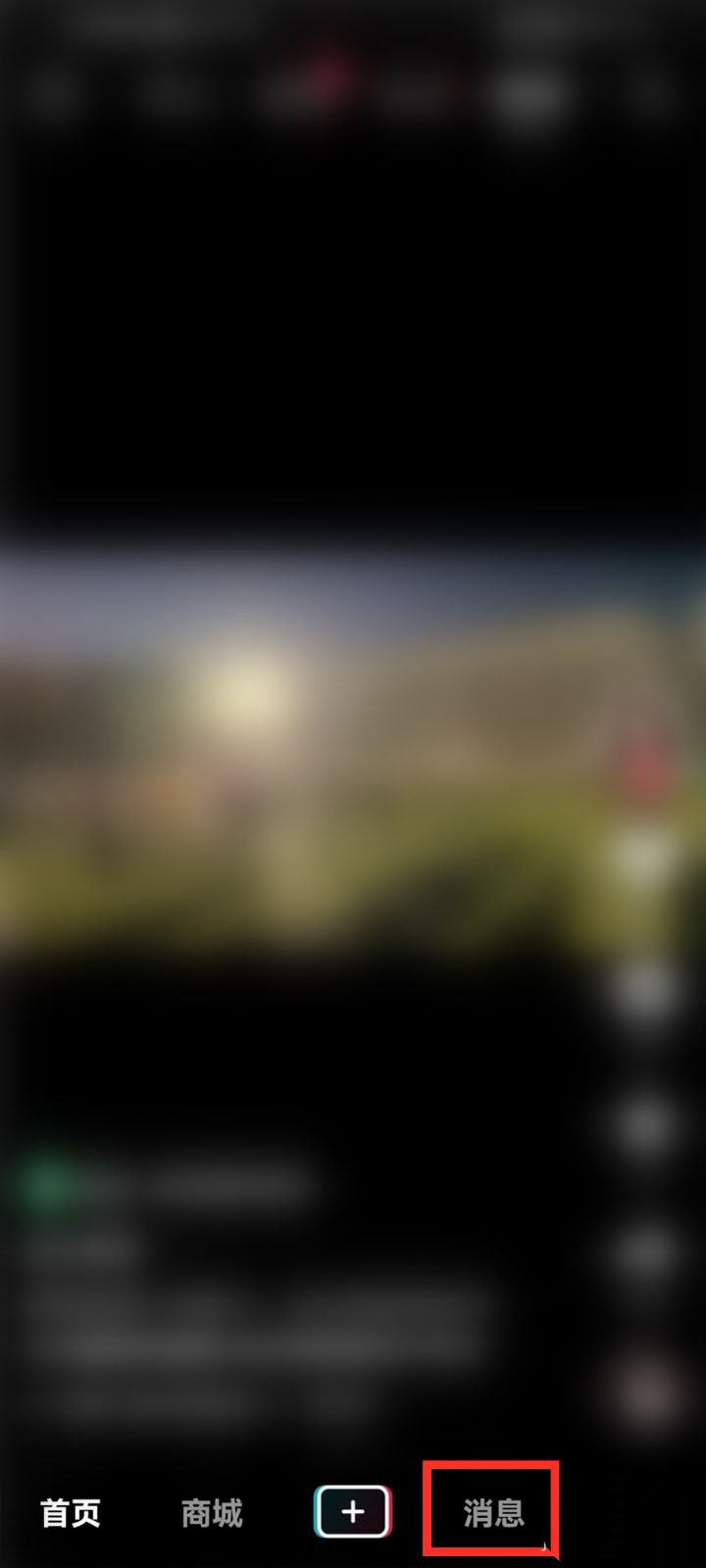春节的起源(英文版)
从这里2113节选你需要的资料5261吧..很全面的..:)TheOriginofChineseNewYearTheChineseNewYearisnowpopularlyknownastheSpringFestivalbecauseitstartsfromtheBeginingofSpring(thefirstofthetwenty-fourtermsincoodinationwiththechangesofNature).Itsoriginistoooldtobetraced.Severalexplanationsarehangingaround.Allagree,however,thatthewordNian,whichinmodernChinesesolelymeans"year",wasoriginallythenameofamonsterbeastthatstartedtopreyonpeoplethenightbeforethebeginningofanewyear.OnelegendgoesthatthebeastNianhadaverybigmouththatwouldswallowagreatmanypeoplewithonebite.Peoplewereveryscared.Oneday,anoldmancametotheirrescue,offeringtosubdueNian.ToNianhesaid,"Ihearsaythatyouareverycapable,butcanyouswallowtheotherbeastsofpreyonearthinsteadofpeoplewhoarebynomeansofyourworthyopponents?"So,itdidswallowmanyofthebeastsofpreyonearththatalsoharrassedpeopleandtheirdomesticanimalsfromtimetotime.Afterthat,theoldmandisappearedridingthebeastNian.Heturnedouttobeanimmortalgod.NowthatNianisgoneandotherbeastsofpreyarealsoscaredintoforests,peoplebegintoenjoytheirpeacefullife.Beforetheoldmanleft,hehadtoldpeopletoputupredpaperdecorationsontheirwindowsanddoorsateachyear'sendtoscareawayNianincaseitsneakedbackagain,becauseredisthecolorthebeastfearedthemost.Fromthenon,thetraditionofobservingtheconquestofNianiscarriedonfromgenerationtogeneration.Theterm"GuoNian",whichmaymean"SurvivetheNian"becomestoday"Celebratethe(New)Year"astheword"guo"inChinesehavingboththemeaningof"pass-over"and"observe".Thecustomofputtingupredpaperandfiringfire-crackerstoscareawayNianshouldithaveachancetorunlooseisstillaround.However,peopletodayhavelongforgottenwhytheyaredoingallthis,exceptthattheyfeelthecolorandthesoundaddtotheexcitementofthecelebration.----------------------------------------------------------------------------------------------------------------------TheSpringFestivalisthemostimportantfestivalfortheChinesepeopleandiswhenallfamilymembersgettogether,justlikeChristmasintheWest.Allpeoplelivingawayfromhomegoback,becomingthebusiesttimefortransportationsystemsofabouthalfamonthfromtheSpringFestival.Airports,railwaystationsandlong-distancebusstationsarecrowdedwithhomereturnees.Strictlyspeaking,theSpringFestivalstartseveryyearintheearlydaysofthe12thlunarmonthandwilllasttillthemid1stlunarmonthofthenextyear.Ofthem,themostimportantdaysareSpringFestivalEveandthefirstthreedays.TheChinesegovernmentnowstipulatespeoplehavesevendaysofffortheChineseLunarNewYear.ManycustomsaccompanytheSpringFestival.Somearestillfollowedtoday,butothershaveweakened.Onthe8thdayofthe12thlunarmonth,manyfamiliesmakelabaporridge,adeliciouskindofporridgemadewithglutinousrice,millet,seedsofJob'stears,jujubeberries,lotusseeds,beans,longanandgingko.The23rddayofthe12thlunarmonthiscalledPreliminaryEve.Atthistime,peopleoffersacrificetothekitchengod.Nowhowever,mostfamiliesmakedeliciousfoodtoenjoythemselves.AfterthePreliminaryEve,peoplebeginpreparingforthecomingNewYear.Thisiscalled"SeeingtheNewYearin".StoreownersarebusythenaseverybodygoesouttopurchasenecessitiesfortheNewYear.Materialsnotonlyincludeedibleoil,rice,flour,chicken,duck,fishandmeat,butalsofruit,candiesandkindsofnuts.What'smore,variousdecorations,newclothesandshoesforthechildrenaswellasgiftsfortheelderly,friendsandrelatives,areallonthelistofpurchasing.BeforetheNewYearcomes,thepeoplecompletelycleantheindoorsandoutdoorsoftheirhomesaswellastheirclothes,bedclothesandalltheirutensils.Thenpeoplebegindecoratingtheircleanroomsfeaturinganatmosphereofrejoicingandfestivity.AllthedoorpanelswillbepastedwithSpringFestivalcouplets,highlightingChinesecalligraphywithblackcharactersonredpaper.Thecontentvariesfromhouseowners'wishesforabrightfuturetogoodluckfortheNewYear.Also,picturesofthegodofdoorsandwealthwillbepostedonfrontdoorstowardoffevilspiritsandpeaceandabundance.TheChinesecharacter"fu"(meaningblessingorhappiness)isamust.Thecharacterputonpapercanbepastednormallyorupsidedown,forinChinesethe"reversedfu"ishomophonicwith"fucomes",bothbeingpr onouncedas"fudaole."What'smore,twobigredlanternscanberaisedonbothsidesofthefrontdoor.Redpaper-cuttingscanbeseenonwindowglassandbrightlycoloredNewYearpaintingswithauspiciousmeaningsmaybeputonthewall.PeopleattachgreatimportancetoSpringFestivalEve.Atthattime,allfamilymemberseatdinnertogether.Themealismoreluxuriousthanusual.Dishessuchaschicken,fishandbeancurdcannotbeexcluded,forinChinese,theirpronunciations,respectively"ji","yu"and"doufu,"meanauspiciousness,abundanceandrichness.Afterthedinner,thewholefamilywillsittogether,chattingandwatchingTV.Inrecentyears,theSpringFestivalpartybroadcastonChinaCentralTelevisionStation(CCTV)isessentialentertainmentfortheChinesebothathomeandabroad.Accordingtocustom,eachfamilywillstayuptoseetheNewYearin.WakinguponNewYear,everybodydressesup.Firsttheyextendgreetingstotheirparents.TheneachchildwillgetmoneyasaNewYeargift,wrappedupinredpaper.PeopleinnorthernChinawilleatjiaozi,ordumplings,forbreakfast,astheythink"jiaozi"insoundmeans"biddingfarewelltotheoldandusheringinthenew".Also,theshapeofthedumplingislikegoldingotfromancientChina.Sopeopleeatthemandwishformoneyandtreasure.SouthernChineseeatniangao(NewYearcakemadeofglutinousriceflour)onthisoccasion,becauseasahomophone,niangaomeans"higherandhigher,oneyearafteranother."ThefirstfivedaysaftertheSpringFestivalareagoodtimeforrelatives,friends,andclassmatesaswellascolleaguestoexchangegreetings,giftsandchatleisurely.BurningfireworkswasoncethemosttypicalcustomontheSpringFestival.Peoplethoughtthesplutteringsoundcouldhelpdriveawayevilspirits.However,suchanactivitywascompletelyorpartiallyforbiddeninbigcitiesoncethegovernmenttooksecurity,noiseandpollutionfactorsintoconsideration.Asareplacement,somebuytapeswithfirecrackersoundstolistento,somebreaklittleballoonstogetthesoundtoo,whileothersbuyfirecrackerhandicraftstohanginthelivingroom.Thelivelyatmospherenotonlyfillseveryhousehold,butpermeatestostreetsandlanes.Aseriesofactivitiessuchasliondancing,dragonlanterndancing,lanternfestivalsandtemplefairswillbeheldfordays.TheSpringFestivalthencomestoanendwhentheLanternFestivalisfinished.Chinahas56ethnicgroups.MinoritiescelebratetheirSpringFestivalalmostthesamedayastheHanpeople,andtheyhavedifferentcustoms.----------------------------------------------------------------------------------------------------------------------春节背景4102知识(英文介绍)☆1653IntroductionTheoldestandmostimportantfestivalinChinaistheSpringFestival,morecommonlyknownintheWestasChineseNewYear.LikeallChinesefestivals,thedateofthenewyearisdeterminedbythelunar/solarcalendarratherthantheWestern(Gregorian)calendar,sothedateoftheholidayvariesfromlateJanuarytomidFebruary.TheSpringfestivalcelebratestheearthcomingbacktolife,andthestartofploughingandsowing.Inthepast,feudalrulersofdynastiesplacedgreatimportanceonthisoccasion,andceremoniestousherintheseasonwereperformed.PreparationsfortheNewYearfestivalstartduringthelastfewdaysofthelastmoon.Housesarethoroughlycleaned,debtsrepaid,haircutandnewclothesbought.Doorsaredecoratedwithverticalscrollsofcharactersonredpaperwhosetextsseekgoodluckandpraisenature,thispracticestemmingfromthehangingofpeach-woodcharmstokeepawayghostsandevilspirits.Inmanyhomesincenseisburned,andalsointhetemplesasamarkofrespecttoancestors.OnNewYear’sEvehousesarebrightlylitandalargefamilydinnerisserved.InthesouthofChinasticky-sweetglutinousricepuddingcalledniangaoisserved,whileinthenorththesteameddumplingjiaoziispopular.Mostcelebratingthefestivalstayuptillmidnight,whenfireworksarelit,todriveawayevilspirits.NewYearsdayisoftenspentvisitingneighbours,familyandfriends.ThepublicholidayforNewYearlasts3daysinChina,butthefestivaltraditionallylaststillthe15thdayofthelunarmonthandendswiththe‘LanternFestival’.Here,housesaredecoratedwithcolourfullanterns,andyuanxioa,asweetorsavouryfriedorboileddumplingmadeofglutinousriceflouriseaten.
肯德基的中英文版菜单(全面的)
Extra-Tasty Crispy Burger Combo 辣堡套 New Orleans Burger Combo 奥堡套 Mexican Twister Combo 墨卷套 Dragon Twister Combo 老北套 Mini Burger Combo 田原套 Hot Wing Combo 辣翅套 New Orleans Roasted Wing Combo 烤翅套 Original Recipe 原味鸡 New Orleans Roasted Wing 烤翅 Popcorn Chicken 鸡米花 Nugget 上块 Corn Salad 玉米色拉 Egg & Vegetable Soup 芙蓉汤 Oinner Roll 餐包 Corn-on-the-cub 玉米棒 Mashed Pototo 土豆泥
反意疑问句的特例希望能得到一个全面点的答案..
反意疑问句对应规则二十四条
反意疑问句是英语四大问句之一,它是由一个陈述句加上一个短问句而构成的.反意疑问句的基本构成形式是:陈述句 动词(肯定或否定) 主语?如:
①She often has lunch at school, doesn’t she? ②You don’t like sports, do you?
使用反意疑问句要注意以下若干对应规则:
一、 反意疑问句中问句部分的动词与陈述部分的动词在语气上成相反的对应关系,即:
肯定 否定? 否定 肯定?如:
①You can’t do it, can you? ②They are very late for the meeting, aren’t they?
二、 反意疑问句中问句部分的动词与陈述部分的动词种类要对应一致.如:
①He has supper at home every day, doesn’t he? (不能用hasn’t he?)
②They have known the matter, haven’t they? (不能用don’t they?)
三、 反意疑问句中问句部分的动词在时态上应和陈述部分的时态一致.如:
①They will go to town soon, won’t they?(不能用don’t they?或 aren’t they?)
②He works very hard, doesn’t he?(不能用didn’t he?或won’t he?)
四、 反意疑问句的陈述部分含有由un-, im-, in-, dis-, 等否定意义的前缀构成的词语时,陈述部分要视为肯定含义,问句部分用否定形式.如:
①Your father is unhappy, isn’t he?(不能用is he?)
②The man is dishonest, isn’t he? (不能用is he?)
③It is impossible to learn English without remembering more words, isn’t it?(不能用is it ?)
五、反意疑问句的陈述部分带有little, few, never, hardly, seldom等否定意义的词时,问句部分用肯定式.如:
①She never tells a lie, does she?(不用doesn’t she?)
②He was seldom late, was he?(不用wasn’t he?)
六、反意疑问句的陈述部分为I am……时,问句部分习惯上用aren’t I?表示.如:
I am a very honest man, aren’t I?
七、反意疑问句的陈述部分为I(We) think(believe, suppose, consider) that从句时,问句部分的动词及主语与that从句内的动词和主语保持一致.如:
①I think that he has done his best, hasn’t he?
②We think that English is very useful, isn’t it? (不用don’t we?)
八、反意疑问句的陈述部分为I(We) don’t think(believe, suppose, consider) that从句时,从句为否定意义,问句部分的动词和主语仍与that从句保持一致且用肯定式.如:
①I don’t think that you can do it, can you? (不用do I?)
②We don’t believe that the news is true, is it? (不用do we?)
九、反意疑问句的陈述部分为非第一人称主语 think(believe, suppose, consider) that从句时,问句部分的动词和主语与陈述部分的主句动词和主语保持一致.如:
①They all think that English is very important, don’t they? (不用isn’t it?)
②He didn’t think that the news was true, did he? (不用wasn’t/ was it?)
十、反意疑问句的陈述部分为主语 said( told, reported, asked……) that从句时,问句部分的动词和主语与陈述部分的主句动词和主语保持一致.如:
①They said that you had finished your work, didn’t they? (不用hadn’t you)
②Kate told you that she would go there, didn’t she? (不用wouldn’t she?)
十一、陈述部分的主语为不定代词something, anything, nothing, everything时,问句部分的主语用it.如:
①Something is wrong with the computer, isn’t it?②Nothing has happened to them, has it?
十二、陈述部分的主语为不定代词somebody(someone), anybody(anyone), nobody(no one), everybody(everyone)时,问句部分的主语用he或 they,这时问句动词的数应和he或 they一致.如:
①Someone has taken the seat, hasn’t he?②Everyone has done their best in the game, haven’t they?
十三、陈述部分为Let me……时,问句部分习惯上用shall I? 或will you?形式.如:
Let me have a try, shall I?(will you?)
十四、陈述部分为Let us……时,问句部分习惯上用will you?形式.如:
Let us stop to rest, will you?
十五、陈述部分为Let’s……时,问句部分习惯上用shall we?形式.如:
Let’s go home together, shall we?
十六、陈述部分用上述情况以外的祈使句时,问句部分一般用will you?形式表示请求,用won’t you?形式表示委婉请求或邀请.如:
①Do sit down, won’t you?/ will you? ②You feed the bird today, will you?
③Please open the window, will you?(won’t you?)
十七、陈述部分为否定祈使句时,问句部分一般用will you?形式.如:
Don’t make any noise, will you?
十八、陈述部分为There (Here) be 主语时,问句部分用动词 there(here)?形式.如:
①There are two cakes on the plate, aren’t there? ②Here is a story about Mark Twain, isn’t here?
十九、陈述部分用had better 原形动词表示建议时,问句部分用hadn’t 主语?形式.
①You’d better tell him about the matter, hadn’t you?②We had better do it by ourselves, hadn’t we?
二十、陈述部分用used to 主语时,问句部分用didn’t 主语?或usedn’t 主语?形式.
①He used to live in the country, didn’t he?/usedn’t he?
②They used to be good friends, didn’t they?/usedn’t they?
二十一、陈述部分用must(may, might) have V-ed表示推测时,若句中带有明显的过去时间的状语,问句部分动词用过去时形式.如:
①He might have forgotten his pen in the classroom yesterday, didn’t he?
(不用mightn’t he?/ hasn’t he?)
②You must have got up late this morning, didn’t you?(不用mustn’t you?/haven’t you?)
二十二、陈述部分用must(may, might) have V-ed表示推测时,若句中没有带明显的过去时间的状语,问句部分动词用现在完成时形式.如:
①Everyone must have known the death of the waitress, haven’t they? (不用mustn’t they?)
②You must have worked there a year ago, didn’t you?(不用mustn’t you?/ haven’t you?)
二十三、陈述部分的主语为从句时,问句部分的主语一般用it代替,如:
①What he said is true, isn't it? (不用didn’t he?)
②Where we will build the dam has not been decided yet, has it? (不用won’t we?)
二十四、陈述部分的主语为动名词或不定式时,问句的主语用it代替.如:
①To do one good deed is easy for a person, isn't it?②Skating is your favorite sport, isn't it?
反意疑问句专题练习
1.I think they will go to town tomorrow, ________?
A.do I B.don’t I C.will they D.won’t they
2.I don’t believe he can catch up with me, _________?
A.can he B.can’t he C.do I D.don’t I
3.I’m sure that I will be well again, __________?
A.am I B.aren’t I C.will I D.won’t I
4.I am afraid that he will not come, _______? A.am I B.aren’t I C.will he D.won’t he
5.They don’t believe you are wrong, _________?
A.are you B.aren’t you C.do they D.don’t they
6.He thought you were Beijing, _________?
A.didn’t he B.did he C.weren’t you D.were you
7.We told you that he would come tonight, _______?
A.didn’t we B.did we C.would he D.wouldn’t he
8.The reporter said the news was not true, _________?
A.wasn’t it B.didn’t he C.did he D.was it
9.They suggested that he should go to work at once, ________?
A.did they B.didn’t they C.should he D.shouldn’t he
10.Your brother has lunch at home, _________-?
A.hasn’t he B.doesn’t he C.has he D.does he
11.John has to get up early, ________? A.has he B.hasn’t he C.does he D.doesn’t he
12.She has got to get everything ready, _________?
A.hasn’t she B.has she C.doesn’t she D.does she
13.She has never been to China, _________?A.has she B.hasn’t she C.doesn’t she D.does she
14.She had better tell you the news right now, _______?
A.had she B.hadn’t she C.did she D.didn’t she
15.They would rather not have done that last week,________?
A.would they B.wouldn’t they C.have they D.haven’t they
16.I’d rather stay here for a rest, ________?A.did I B.would I C.didn’t I D.wouldn’t I
17.You ought to do it again,_________?A.ought you B.oughtn’t you C.do you D.don’t you
18.You must do that again,_________?A.mustn’t you B.needn’t you C.do you D.don’t you
19.He must wait here, __________?A.mustn’t he B.doesn’t he C.shouldn’t he D.does he
20.He must be a good worker,________?A.mustn’t he B.needn’t he C.isn’t he D.doesn’t he
21.He must have been to China twice,_________?
A.hasn’t he B.didn’t he C.wasn’t he D.mustn’t he
22.He must have been ill last week,__________?
A.hasn’t he B.didn’t he C.wasn’t he D.mustn’t he
23.He must have known you during the war,__________?
A.hasn’t he B.didn’t he C.wasn’t he D.mustn’t he
24.He must have known the result already,_________?
A.hasn’t he B.didn’t he C.wasn’t he D.mustn’t he
25.There used to be a temple here,________?
A.didn’t there B.did there C.used there D.was there
26.They used to be good friends,________?
A.usedn’t they B.didn’t they C.used they D.both A and B
27.Mother usedn’t to dress the baby,______?
A.didn’t she B.did she C.used she D.usedn’t she
28.The students used to go to see him,_______?
A.usedn’t they B.didn’t they C.used they D.both A and B
29.Alice, you have a little more chicken,________?
A.haven’t you B.don’t you C.will you D.do you
30.Hi! Alice, you have bought a little chicken,_________?
A.haven’t you B.won’t you C.will you D.have you
31.You two had breakfast just now,__________?
A.hadn’t you B.didn’t you C.had you D.did you
32.You two had finished the breakfast,_________?
A.hadn’t you B.didn’t you C.did you D.had you
33.Neither you nor I was invited to the party,________?
A.were we B.weren’t we C.was I D.were you
34.Either he or she is to clean the window,__________?
A.are they B.aren’t they C.isn’t he D.isn’t she
35.It is Jiao Yulu who turned Lankao into a rich district,_______?
A.is it B.isn’t it C.did he D.didn’t he
36.It was you who never made such mistakes,________?
A.wasn’t it B.weren’t you C.did you D.didn’t you
37.The little child dared not climb the tree,________?
A.dared he B.did he C.was he D.does he
38.What he said is not wrong,__________? A.didn’t he B.did he C.is it D.isn’t it
39.That his parents were ill made him a little worried,_________?
A.weren’t they B.were they C.didn’t it D.wasn’t it
40.He dislikes what you have said,__________?A.does he B.doesn’t he C.have you D.haven’t you
41.(2003Shanghai spring)If you want help—money or anything,let me know,____you?
A.don’t B.will C.shall D.do
42.(2002Shanghai)Mrs. Black doesn’t believe her son is able to design a digital cameral,____?
A.is he B.isn’t he C.doesn’t she D.does she
43.(2002Shanghai spring)Brian told you that there wasn’t anyone in the room at that time,___?
A.was there B.wasn’t there C.didn’t he D.did he
44.(2001Shanghai)I don’t suppose anyone will volunteer,_____?
A.do I B.don’t I C.will they D.won’t they
45.(2000Shanghai)The news that they fialed their driving test discouraged him,___?
A.did they B.didn’t they C.did it D.didn’t it
46.(NMET99)—Alice,you feed the bird today,____? --But I fed it yesterday.
A.do you B.will you C.didn’t you D.don’t you
TSINGTAO青岛,为什么不是QINGDAO
青岛:TSINGTAO
清华大学:TSINHUA University
这两个青字开头的都是TSING,而不是汉语拼音的QING,因为TSING[ˈtsiɪŋ]是“青、清、情、庆”等QING字音的邮政式拼音。1906年帝国邮政联席会议之后确定了邮政拼音的用法,这种拼音通常仅用于地名的拼写,也是上世纪五十年代前欧美国家对地名的常用拼写,这在当时是极为普遍的现象。比如类似的还有北京Peking、南京Nanking、重庆Chungking、天津Tientsin、广东 Canton等等。
而汉语拼音是由我国著名语言学家周有光在1958年发明的,比邮政式拼音的出现晚了半个世纪。不过在此之后随着《汉语拼音方案》的实施,各地国际邮政名称也都改成了汉语拼音来拼写。
但是为什么所有“邮政拼音”“美式拼音”等都改为汉语拼音了,而清华大学和青岛啤酒还继续沿用以前的“外国拼音”呢?这里都是有历史烙印有关系的。
比如青岛曾经和港澳一样是殖民地,德国统治时期在这里设立了青岛啤酒厂,直接把TSINGTAO作为青岛啤酒的LOGO;而清华大学是美国人用庚子赔款建立的,也是直接把TSINGHUA印在了校徽上。
因此这两者都是一直沿用创办时的LOGO而保留了这样的英文旧称。时至今日,我国的中文名称拼写全部以汉语拼音为标准,像TSINGTAO、TSINHUA UNIVERSITY、Peking UNIVERSITY这些都已经变成了专属名称,仅应用于其“品牌”本身。
肯德基在市场的四大利器
01

